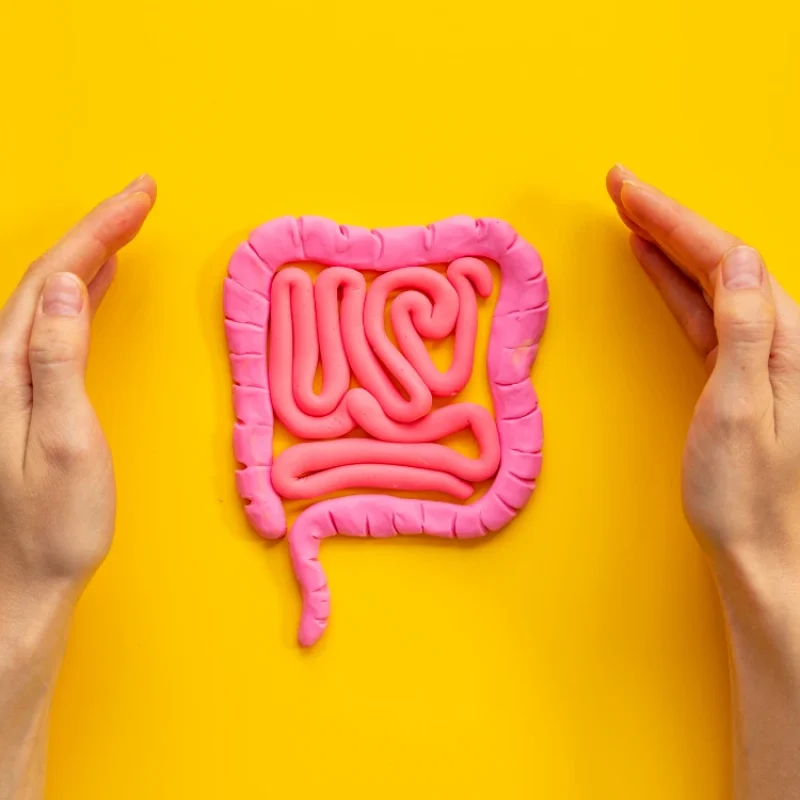A healthy gut is essential for overall well-being, yet many of us experience digestive issues that go unnoticed or untreated. These problems can range from bloating and constipation to more severe issues like irritable bowel syndrome (IBS) and chronic inflammation. To maintain a balanced digestive system, it’s crucial to take steps to support gut health. One of the most effective ways to do this is through a 15-day gut cleanse.
A gut cleanse is a detoxifying process designed to reset and rejuvenate your digestive system, improve gut flora, and enhance overall digestive function. This article will dive deep into the science behind a gut cleanse, why it’s necessary, how to perform it properly, and provide a detailed 15-day cleanse plan. We’ll also discuss the signs that your gut might need a cleanse, so you can make an informed decision about whether to embark on this journey.
What is a Gut Cleanse?
A gut cleanse refers to a dietary or lifestyle regimen that focuses on removing toxins, balancing gut bacteria, and improving digestion. The goal is to detoxify the digestive tract, heal the gut lining, and restore a healthy microbiome. A balanced gut microbiome is crucial for many bodily functions, including immune health, digestion, mood regulation, and even weight management.
A 15-day gut cleanse is a structured program that can help reset your gut, improve digestion, reduce bloating, and promote overall well-being. It’s often made up of specific foods, supplements, and lifestyle practices that support gut health.
Why is Gut Health Important?
The health of your gut goes far beyond just digestion. In fact, the gut microbiome is often referred to as the “second brain” because of its deep connection to various bodily functions, including immune response and mental health. Here’s why gut health matters:
- Immune Function: 70% of the body’s immune system resides in the gut. A healthy gut helps defend against harmful pathogens and supports immune regulation.
- Mood and Mental Health: The gut and brain are connected via the gut-brain axis, which means that an unhealthy gut can lead to mood disorders like anxiety and depression.
- Digestive Health: The gut is responsible for digesting and absorbing nutrients, and maintaining a healthy gut is key to preventing conditions like bloating, constipation, and IBS.
- Metabolism and Weight: Research suggests that a healthy microbiome is crucial for metabolism and managing weight.
How to Do a 15-Day Gut Cleanse
A 15-day gut cleanse involves a strategic approach, combining dietary changes, hydration, and lifestyle practices. The goal is to eliminate foods that are harmful to gut health while increasing the intake of foods that promote healing and restore balance. Below is a step-by-step guide to help you cleanse your gut effectively over the next two weeks.
Day 1-5: Eliminate Toxins and Focus on Detoxifying Foods
In the first five days of your gut cleanse, focus on eliminating processed foods, sugar, and dairy. These can promote inflammation and contribute to an imbalance in the gut microbiome. Instead, replace these foods with natural, whole-food options that promote detoxification and nourish the gut.
Foods to Eat:
- Leafy Greens: Kale, spinach, and arugula are rich in fiber and antioxidants that help detoxify the body.
- Fermented Foods: Sauerkraut, kimchi, kefir, and yogurt (with probiotics) introduce beneficial bacteria to your gut.
- Fiber-Rich Foods: Foods like oats, flaxseeds, chia seeds, and avocados help regulate digestion and keep things moving.
- Healthy Fats: Avocados, olive oil, and nuts provide anti-inflammatory benefits and help support gut lining health.
Foods to Avoid:
- Sugar: High sugar consumption can promote the growth of harmful bacteria and yeast in the gut.
- Processed Foods: These foods are often low in nutrients and high in artificial additives, which can negatively affect the gut microbiome.
- Dairy: Dairy can irritate some individuals’ digestive systems, particularly those with lactose intolerance.
- Caffeine: Limit caffeine intake as it can disrupt the gut lining and contribute to inflammation.
Day 6-10: Repair and Rebuild the Gut Lining
During the second phase of your cleanse, focus on rebuilding the gut lining and supporting healthy digestion. At this stage, you can begin introducing more gut-healing foods and supplements to restore balance to your microbiome.
Foods to Eat:
- Bone Broth: Rich in collagen and amino acids, bone broth helps to repair and heal the gut lining.
- Ginger and Turmeric: These powerful anti-inflammatory herbs help soothe the digestive tract and promote healing.
- Prebiotic Foods: Garlic, onions, asparagus, and bananas provide food for beneficial gut bacteria and support a healthy microbiome.
- L-glutamine: Consider adding L-glutamine supplements to support the healing of the gut lining and reduce gut inflammation.
Lifestyle Tips:
- Hydration: Drink plenty of water throughout the day to support detoxification and digestion.
- Mindful Eating: Take time to eat slowly, chew your food thoroughly, and avoid overeating, which can contribute to digestive distress.
Day 11-15: Reinforce and Balance Your Gut Flora
The final phase of the 15-day gut cleanse focuses on reinforcing the gut microbiome and promoting long-term gut health. This phase is about ensuring the healthy bacteria in your gut continue to thrive and that harmful bacteria are kept at bay.
Foods to Eat:
- Probiotic-Rich Foods: Continue consuming fermented foods like kimchi, yogurt, and kefir to maintain a healthy gut flora.
- Prebiotic Foods: These foods help nourish the probiotics and support the beneficial bacteria in your gut.
- High-Quality Protein: Grass-fed meats, wild-caught fish, and plant-based proteins (such as beans and lentils) provide essential nutrients for gut health.
Supplements:
- Probiotics: Consider taking a high-quality probiotic supplement to help repopulate your gut with beneficial bacteria.
- Magnesium: This can help relieve constipation and support digestive function.
Signs Your Gut Might Need a Cleanse

If you’re unsure whether a gut cleanse is right for you, consider the following signs of an unhealthy gut. If you’re experiencing any of these symptoms, a 15-day gut cleanse could be highly beneficial:
- Chronic bloating or gas
- Constipation or diarrhea
- Sugar cravings
- Fatigue or poor sleep
- Frequent skin issues like acne or eczema
For more on gut health, you can check out our 10 Signs of an Unhealthy Gut.
Conclusion
A 15-day gut cleanse is an excellent way to reset your digestive system, promote healthy gut flora, and reduce inflammation. By following this structured plan, you can support your body’s natural detox processes and improve your overall well-being. Remember to focus on whole, nutrient-dense foods, stay hydrated, and incorporate gut-healing supplements where necessary. After completing the cleanse, you should feel more energized, experience improved digestion, and notice a reduction in symptoms like bloating and fatigue.
With these 15 days, you’re taking the first step toward better gut health, and with consistent effort, you can maintain long-term digestive wellness.
Frequently Asked Questions (FAQ)
- What is a gut cleanse?
A gut cleanse is a dietary or lifestyle regimen designed to remove toxins from your digestive system, restore balance to your gut bacteria, and improve overall gut health. It involves eliminating harmful foods, consuming gut-friendly foods, and sometimes using supplements to support the healing process of your digestive system.
- How does a 15-day gut cleanse work?
A 15-day gut cleanse involves a structured plan to improve digestion and gut health over a two-week period. It typically includes eliminating processed foods, sugar, and dairy in the first few days, followed by incorporating healing foods like bone broth, fermented foods, and prebiotics in the middle. The final phase focuses on reinforcing healthy gut flora with probiotics and fiber-rich foods.
- Can I still eat my regular meals during a gut cleanse?
During a gut cleanse, it’s essential to focus on whole, nutrient-dense foods. You’ll need to avoid processed foods, sugar, dairy, caffeine, and alcohol. Instead, you should eat gut-friendly foods such as leafy greens, fermented foods, and prebiotic-rich foods like garlic and onions. It’s a time to prioritize foods that promote digestion and nourish the microbiome.
- What foods should I avoid during the 15-day gut cleanse?
During the cleanse, it’s best to avoid:
- Processed foods: These are often high in artificial additives and sugars, which can disrupt the gut microbiome.
- Sugar: Excessive sugar feeds harmful bacteria and yeast in the gut.
- Dairy: If you have lactose intolerance or sensitivities, dairy can cause digestive distress.
- Caffeine: While moderate caffeine intake may be fine for some, it can irritate the gut lining and disrupt digestion for others.
- Alcohol: Alcohol can damage the gut lining and disrupt the balance of gut bacteria.
- Can I do a gut cleanse if I have a pre-existing condition, like IBS or Crohn’s disease?
If you have a pre-existing digestive condition like IBS or Crohn’s disease, it’s important to consult your healthcare provider before beginning a gut cleanse. While a gut cleanse can help promote gut health, certain foods or supplements may not be suitable for individuals with specific conditions. Your doctor can guide you on the best approach for your health needs.
- Will I experience any side effects during the cleanse?
During the cleanse, some people may experience mild side effects as the body adjusts, such as bloating, mild headaches, or changes in bowel movements. This is common, especially in the early stages of eliminating processed foods and toxins. However, these symptoms usually subside as your body adapts to the healthier diet.
- How do I know if my gut needs a cleanse?
Signs that your gut might need a cleanse include:
- Chronic bloating or gas
- Frequent constipation or diarrhea
- Sugar cravings
- Fatigue or poor sleep
- Skin issues like acne or eczema
If you notice these symptoms regularly, a gut cleanse may help improve your digestive health.
- Can a gut cleanse improve my immune system?
Yes, a gut cleanse can enhance your immune system. Around 70% of the body’s immune system is housed in the gut. By improving gut health and balancing your microbiome, you can better support immune function and overall well-being.
- Can I continue the gut cleanse for more than 15 days?
While a 15-day gut cleanse is effective for resetting your gut, you can continue with some of the practices long-term, such as consuming more whole foods, drinking enough water, and maintaining a balanced diet. For some, a longer cleanse may be beneficial, but it’s important to listen to your body and consult with a healthcare provider before extending the cleanse.
- How do I maintain gut health after the cleanse?
After completing a gut cleanse, it’s essential to continue practicing good gut health habits, such as:
- Eating a balanced diet: Include plenty of fiber, fermented foods, and prebiotic-rich foods in your meals.
- Staying hydrated: Drink enough water to support digestion.
- Regular exercise: Physical activity helps maintain a healthy gut and reduces inflammation.
- Managing stress: Stress can negatively impact the gut, so practicing stress management techniques like meditation can help.






